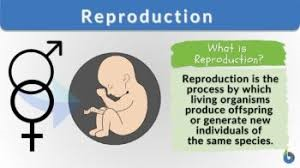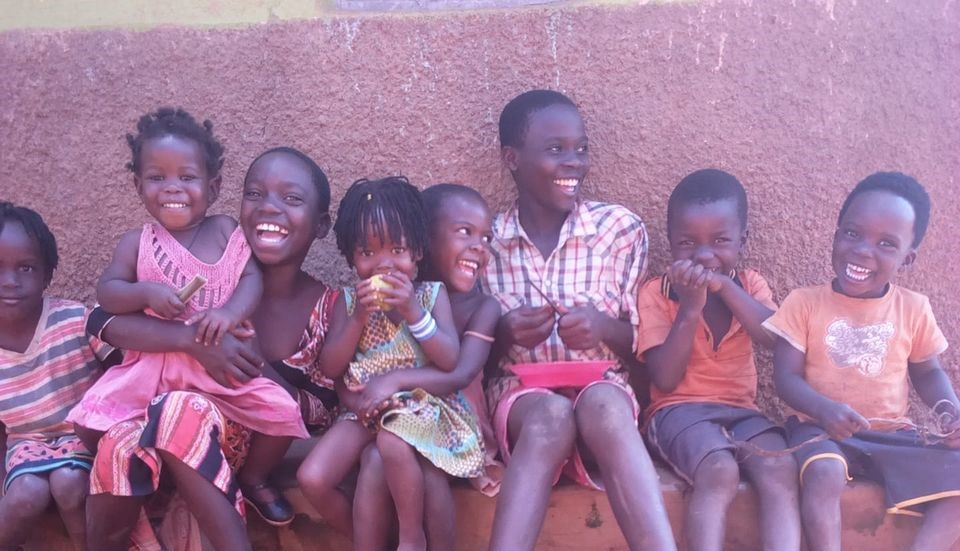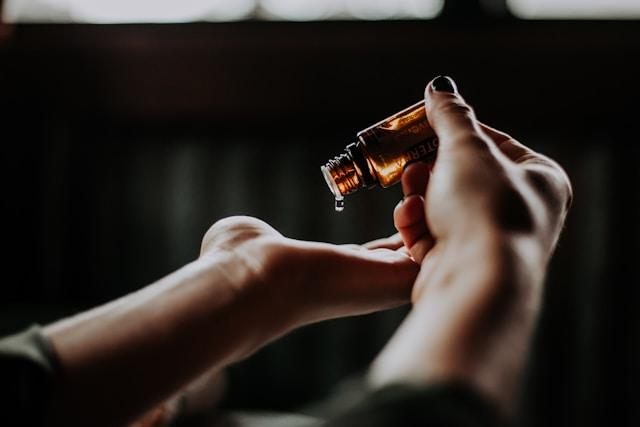Groundbreaking Workshop on AI and Technology-Facilitated Gender-Based Violence at AWiM24
Trending
Saturday April 19, 2025
Trending

Photo Credit: Prince Akachi on Unsplash
Two 17-years-old girls, Cleopatra and Joanna have fallen victim to the ‘Panadol-Milk fallacy’; a popular but dangerous misconception among the teenage girls in Ssemawundo, a humble fishing community in Bufumira sub-county, Kalangala, Central Uganda. These girls believed that taking Panadol tablets with warm milk before unprotected sex would prevent them from getting pregnant. Sadly, they have ended up pregnant after using this false method.


Panadol is a brand name for Paracetamol , which is an analgesic and antipyretic drug that is used to temporarily relieve mild-to-moderate pain and fever. It is commonly found as an active ingredient in cold and flu medications, and is also available as a standalone treatment.
Research done by US-based health magazine, GoodRX reveals that certain oral medications should be taken separately from calcium-rich dairy products like milk, yogurt, and ice cream. Calcium can bind to these medications, affecting their efficacy. This interaction can reduce the medication’s effectiveness. Contrary to this misinformation, taking Paracetamol with dairy products like milk does not prevent pregnancy. Instead, it may decrease the drug’s potency.
The prospects for these young girls, who became mothers at just 14 and 15 years old, are now uncertain due to their decision to drop out of school.
Cleopatra, now a mother of two, had once aspired to become a doctor or healthcare worker, driven by a passion to help her community. However, her dreams were put on hold when she became pregnant during the 2022 COVID-19 pandemic lockdown, which forced an extended school break.
At just 15, Cleopatra is already mother to a 3-year-old and a 1-year-old. While it’s not too late to pursue her goals, her priority has shifted to providing for her children. Reflecting on her past, Cleopatra recalls spending time with peers discussing sexual reproduction and exchanging ideas whenever she had the chance.
“I heard about it and gave it a try but it did not work as I hoped. I did not get the protection my friends said I would,” she stated. She further mentioned that her friend used the Panadol-milk method several times without getting pregnant while others who tried it ended up conceiving.
“I later established that my friend does this during her ‘safe days’ when she cannot get pregnant which other girls don’t know about,” Joanna said.
Kalangala or Ssese Islands, is Uganda’s largest archipelago comprising 84 scattered islands across Lake Victoria, the world’s largest tropical lake and second-largest freshwater body. Of these islands, only 64 are habitable. The district’s isolated and peculiar setup makes it challenging to deliver essential services like healthcare and education to its residents especially, young people.
In this district, many adolescent girls, once full of hopes and dreams, have had their future largely disrupted as they are no longer in school . They become mothers too early and are overwhelmed by the different responsibilities that come with raising children. This is attributed to lack of access to vital Sexual Reproductive Health information (SHR) and enough resources for sensitization campaigns in the scattered communities.

Basic Sexual Reproductive Health Information
Photo Credit: Biology online
According to Joanna, she is struggling to raise her one-year-old baby because she does not have enough financial support. However, she chose to join a skilling training centre to learn fashion and design as an alternative career, so she can support her son.
Sharon, a 15-year-old mother from Senero village in Mugoye sub-county, also fell in the same trap. She shared that she became pregnant in 2023 because she lacked correct information about SRH which disrupted her education and shuttered her dream of becoming a lawyer.
“The advice about using Panadol and milk to prevent pregnancy is so common among teens, and unwitting young women but it does not work at all. I always told my sisters and friends not to try it because I don’t want them to make the same mistake I did. ”she said.
She further explained that so many girls who fall in the Panadol-milk myth and end up pregnant usually resort to unconventional means to abort which only leads to more problems. When asked about the reasons for the rampant early or teen pregnancies in Kalangala, she pointed to poverty and the uncontrolled desire for material things.
“Since our parents cannot afford our needs, many girls end up giving in to sexual advances from the men who can provide and I do not blame them. I only advise them to use all forms of protection to avoid getting pregnant,” she stated.
The three teenagers are now taking extra care following proper menstruation cycles, and using proper family planning methods like use of contraception like oral contraceptive pills, implants, injectables, condoms, withdrawal and other best alternatives.
Their stories resonate with so many others across the district especially in remote islands and landing sites.
Monica Lebo, a concerned parent, Village Health Officer (VHT), and Family Planning Educator at Lutoboka landing site, revealed that many girls in this community are using unsafe and misguided methods in trying to prevent pregnancy.
According to Lebo, the girls use both PANADOL and FLAGYL tablets, one used for curing headaches and the other an antibiotic that is used to treat a wide variety of infections. It works by stopping the growth of certain bacteria and parasites to prevent pregnancy. Lebo explained that some take two panadol tablets with milk and after having sex, others take four fragile tablets after sex and others use it for abortion.
“These methods are dangerous and ineffective but the girls do not know due to lack of accurate SRH information. Still, efforts to debunk this myth are failing due to lack of financial resources to move all different communities to sensitise them about the dangers of these dangerous methods,” she explained.
She further noted that due to high poverty levels in the community where parents cannot provide for their children, many unmarried fishermen usually target young girls and entice them with money in exchange for sex. In addition, the girls do not get enough information on family planning from health workers leaving them exposed to risky behaviours and early pregnancy.
Lebo blamed the situation on several factors including the lack of SRH information, widespread poverty and exposure of children to sex in their homes; the children being exposed to sexual activity in their homes. “In many cases, parents are either unaware or negligent, failing to take responsibility for educating their children about sex. Also the nature of housing in Kalangala where most structures are temporarily made out of wood and it’s a curtain separating the rooms, the children are exposed to the sound and actions’’. She said
Additionally, limited financial resources make it hard to conduct outreach programs in the community that could teach girls about safe sex, the risks of early pregnancy, and proper contraception methods. Without this support, many girls continue to rely on false and harmful methods, putting their health and futures at risk.
Olive Kyakuwa, the Coordinator for Maria Theresa Foundation (MTF), a community-Based Organization rehabilitating teenage mothers, said they do not have any clue where this disinformation came from and started spreading like wildfire among the unsuspecting teenagers.

Photo Credit: Maria Theresa Foundation Kalangala
“It would be inconsiderate to label the teenagers using this dangerous method, ignorant or irresponsible since they are victims of different circumstances beyond their control,” she said.
According to Kyakuwa, teenagers in these island communities face various challenges in their daily lives including poverty where different households are struggling to fend for their children’s needs in addition to the limited access to correct SRH education and sources to dispel this false belief and practice.
“We also look at the long distances to reach health centres, most of which have poor infrastructure and lack well-trained and dedicated SRH educators and reliable sources of information,” she explained.
In addition, Kyakuwa said that there are also cultural norms and taboos that usually hinder open discussions around sex yet it would prepare children with proper information to counter worse situations and make well informed decisions.
“While we are raising awareness in different communities about the harmful SRH practices, we still face a challenge of accessing schools with vital information. It’s because the government banned comprehensive sexuality education (CSE) in schools In 2016. As a result, children, especially teenagers, lack accurate, clear, and reliable information they need,” she stated.
More false pregnancy prevention myth

Photo Credit: Christin Hume on Unsplash.com
Apart from the commonest Panadol-Milk myth, Joseph Lubandi , a prominent Peer Educator and condom distributor in Kalangala Town Council and Bujumba sub-county, explained that there are other harmful practices and beliefs secretly used by teenagers in addressing SRH challenges especially pregnancies.
“There is also a myth of taking a lot of tea leaves before and after unprotected sex and black jack leaves crushed and mixed with water to prevent pregnancy’’ Lubandi says . He also attributes the challenge to lack of enough condom distribution among young men. “As a condom distributor in the town council and Bujjumba sub-county, I established that many youths have no access to condoms hence creating room for them to impregnate girls.”
Speaking to the New Vision, Josephine Namulindwa, Chairperson Kalangala District Women Council, said they are working hard to change the way the youths think about Family Planning and modern contraceptives, in addition to debunking the false beliefs about it.
“We believe these pregnancies come as a result of lack of knowledge among both boys and girls. They, actually, need more information on pregnancy prevention since they are often exposed to sexual situations in their homes and communities,” she said.
In addition, Namulindwa noted that many parents in fishing communities often have children at a very young age and cannot provide proper guidance to their children. She further said that the teens are scared of going for family planning services at health centres because they are not given attention. Instead, she added, they are humiliated by the handlers of these services.
Herbert Mugambe, the Kalangala District Probation Officer, confirmed the teen pregnancy rate in Kalangala took a sharp increase during the COVID19 lockdown in 2020. The district registered 496 cases in 2020, and 449 cases in 2021. Due to some interventions the cases started reducing gradually from 359 cases in 2022 and 273 cases in 2023
Mugambe explained that although the number is gradually declining due to the collaboration with different organizations for continuous sensitisation. More cases of unintended pregnancies continue to arise due to persistent myths and misconceptions surrounding contraception.
“Teen pregnancies are more common in remote island communities where SRH services are too hard to access. However, more attention is required to tackle these challenges and debunk the myths and misconceptions among the teens,” he recounted.
According to the World Health Organisation adolescents are exposed to several challenges which affect their sexual and reproductive health and rights. Some of these challenges include sexual coercion and intimate partner violence, lack of education and information; high rates of early and unwanted pregnancy; lack of access to health services, especially for contraception and safe abortion; gender inequalities and harmful traditional practices.
Apart from the common Panadol-milk myth, Mugambe highlighted other unsafe practices. For example, some teens wash themselves with soda after sex. “Some take FLAGYL tablets, and drink concoctions while others take too much coffee thinking it prevents pregnancy but they always end up conceiving,” he stated.
Mugambe attributed the problem to lack of access to emergency pills to control pregnancy, lack of youth friendly centres in different health centres, in addition to increasing stereotypes about family planning in various communities.
“Following the rising pregnancies from the misconceptions, and lack proper information, the district and its partners are looking to roll out a peer-to-peer model to change the narrative in all 64 habitable islands. These groups can be empowered to disseminate information about SRH among themselves,” he stated.
Editor’s Note: The names of the survivors have been altered in this report for their security.
“African Women in Media’s Gender Stories Editorial Fellowship, supported by Fojo Media Institute”
We’re not gonna spam. We’ll try at least.

Copyright 2020. African Women In Media